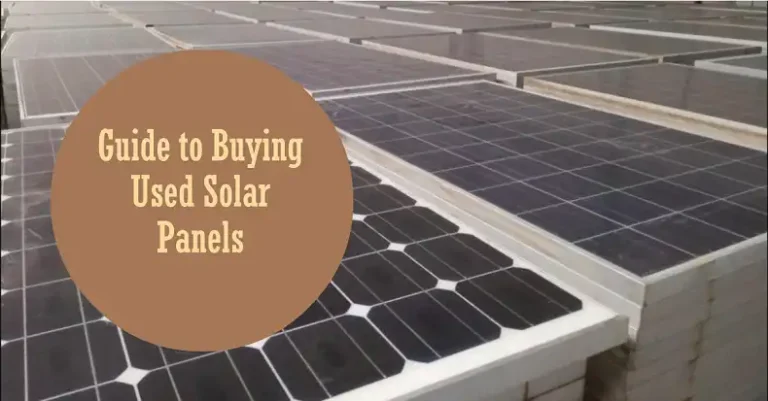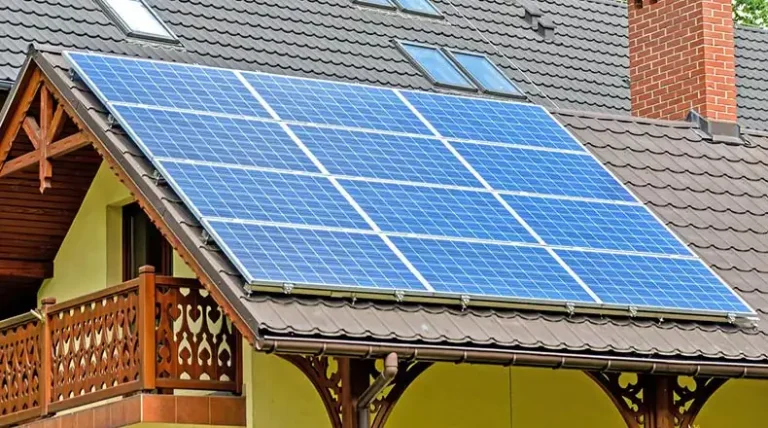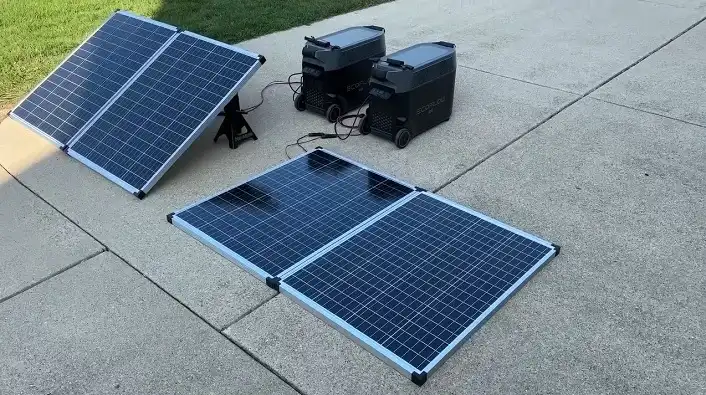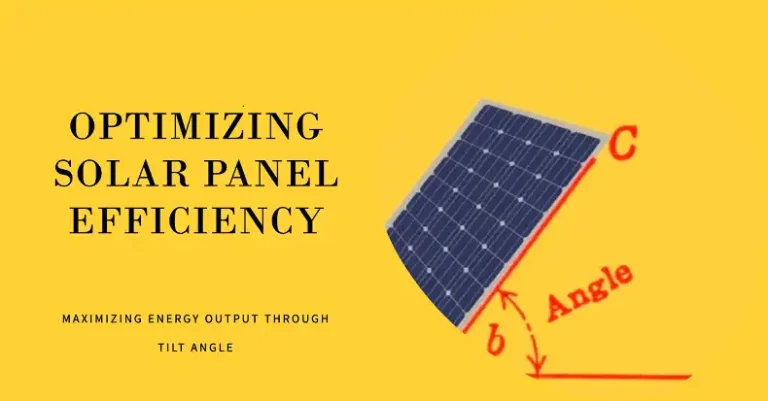What Size Solar Panel to Charge a 50Ah Lithium Battery? My Findings
Solar energy is a clean and sustainable power source that has gained widespread popularity for various applications. If you’re considering setting up a solar panel system to charge a 50Ah lithium battery, it’s essential to understand the sizing requirements for optimal performance.
Many individuals are interested in installing solar panels for different purposes, and when it comes to charging a 50Ah lithium battery, one common question arises – what size solar panel is needed to efficiently charge this battery? In this article, we will guide you through the process of finding the right answer to this question.
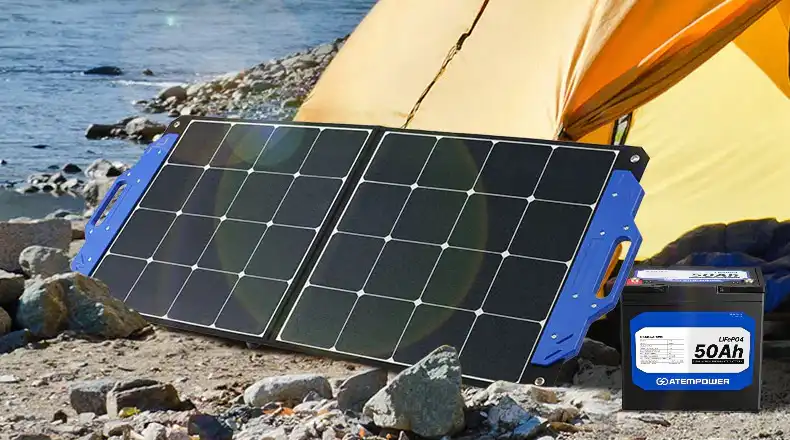
Determining the Appropriate Wattage for Your Solar Panel
To efficiently charge a 50Ah lithium battery, you’ll need to calculate the required wattage of solar panels. The choice of your charge controller type significantly impacts this calculation.
Using an MPPT Charge Controller:
With an MPPT charge controller, which is more efficient, you’ll require approximately 153 watts of solar panels to charge a 50Ah lithium battery effectively. This calculation assumes you have access to about 5 peak sun hours during the day.
Using a PWM Charge Controller:
If you opt for a PWM charge controller, you will need around 191 watts of solar panels to charge the same 50Ah battery in the same time frame. PWM charge controllers are less efficient, so you need more solar panels to compensate for this reduced efficiency.
It’s important to note that the above information is specific to a 12V 50Ah lithium battery. To provide a quick reference, here’s a table showcasing the required solar panel size for 12V, 24V, and 48V 50Ah lithium batteries under varying peak sun hour conditions –
| Charge Time | Charge Controller Type | Required Solar Panel Size (12V) | Required Solar Panel Size (24V) | Required Solar Panel Size (48V) |
| 5 peak sun hours | MPPT | 153 watts | 77 watts | 39 watts |
| 10 peak sun hours | MPPT | 76 watts | 38 watts | 19 watts |
| 15 peak sun hours | MPPT | 51 watts | 26 watts | 13 watts |
| 20 peak sun hours | MPPT | 38 watts | 19 watts | 10 watts |
| 25 peak sun hours | MPPT | 30 watts | 15 watts | 8 watts |
| 5 peak sun hours | PWM | 191 watts | 95 watts | 48 watts |
| 10 peak sun hours | PWM | 95 watts | 48 watts | 24 watts |
| 15 peak sun hours | PWM | 63 watts | 32 watts | 16 watts |
| 20 peak sun hours | PWM | 48 watts | 24 watts | 12 watts |
| 25 peak sun hours | PWM | 38 watts | 19 watts | 10 watts |
This table provides a convenient reference for choosing the right solar panel size based on your specific battery, charge controller type, and the amount of sunlight available in your location.
Key Factors in Determining Solar Panel Size
When it comes to harnessing the abundant energy of the sun through solar panels, size matters. The efficiency and effectiveness of your solar panel system hinge on getting the size just right. But how do you determine the optimal solar panel size for your specific needs? Several key factors influence this decision, including –
The amount of sunlight your location receives
The primary factor impacting solar power generation is the amount of sunlight in your location. Areas with abundant sunlight will generate more energy compared to regions with less sun exposure. Utilize solar calculators to estimate sunlight hours and intensity in your area.
The efficiency of your solar panels
Not all solar panels are created equal in terms of efficiency. The quality and design of solar panels can vary, affecting their energy conversion capabilities. High-efficiency panels can significantly enhance your system’s performance.
The efficiency of your charge controller
The choice between MPPT and PWM charge controllers is pivotal in optimizing your solar setup. MPPT controllers are known for their high efficiency in extracting energy from solar panels, making them a preferred choice for efficient charging.
Your overall energy consumption
Your energy consumption requirements dictate the size and capacity of your solar panel system. The greater your power needs, the larger the solar panel array you’ll need to meet those demands. Accurate knowledge of your power consumption is essential for designing a reliable renewable energy system.
People Also Ask
What size solar panel do I need to charge a 50Ah lithium battery efficiently?
To efficiently charge a 50Ah lithium battery, you’ll need around 153 watts of solar panels with an MPPT charge controller and approximately 191 watts with a PWM controller, assuming you have about 5 peak sun hours per day.
Can I use a smaller solar panel setup for my 50Ah battery?
Yes, you can, but it will prolong the charging time. The size of your setup should align with sunlight availability and your power consumption.
How do I determine the sunlight my location receives?
Estimate sunlight using a solar calculator that factors in your geographical location and climate data. This will help you gauge your solar energy potential.
Can I combine different solar panel sizes in a single setup?
While it’s possible, it’s not recommended due to varying voltage outputs. It’s best to use the same type and size of panels for simplicity and efficiency.
What happens if I overestimate the size of my solar panel setup?
If you overestimate, you may have excess power, which can be stored in your battery for later use or even sold back to the grid, depending on your setup and local regulations. It’s better to have more power than not enough!
End Note
In the end, it can be said that selecting the right solar panel size to charge a 50Ah lithium battery is a critical step in harnessing the sun’s power efficiently. It involves considerations of your location’s sunlight availability, the efficiency of your solar panels, the type of charge controller, and your energy requirements. By understanding these variables, you can make an informed decision and embark on the path to a greener, more sustainable future. Should you have further questions or require guidance, don’t hesitate to seek assistance. Solar energy not only benefits the environment but also your financial well-being.

